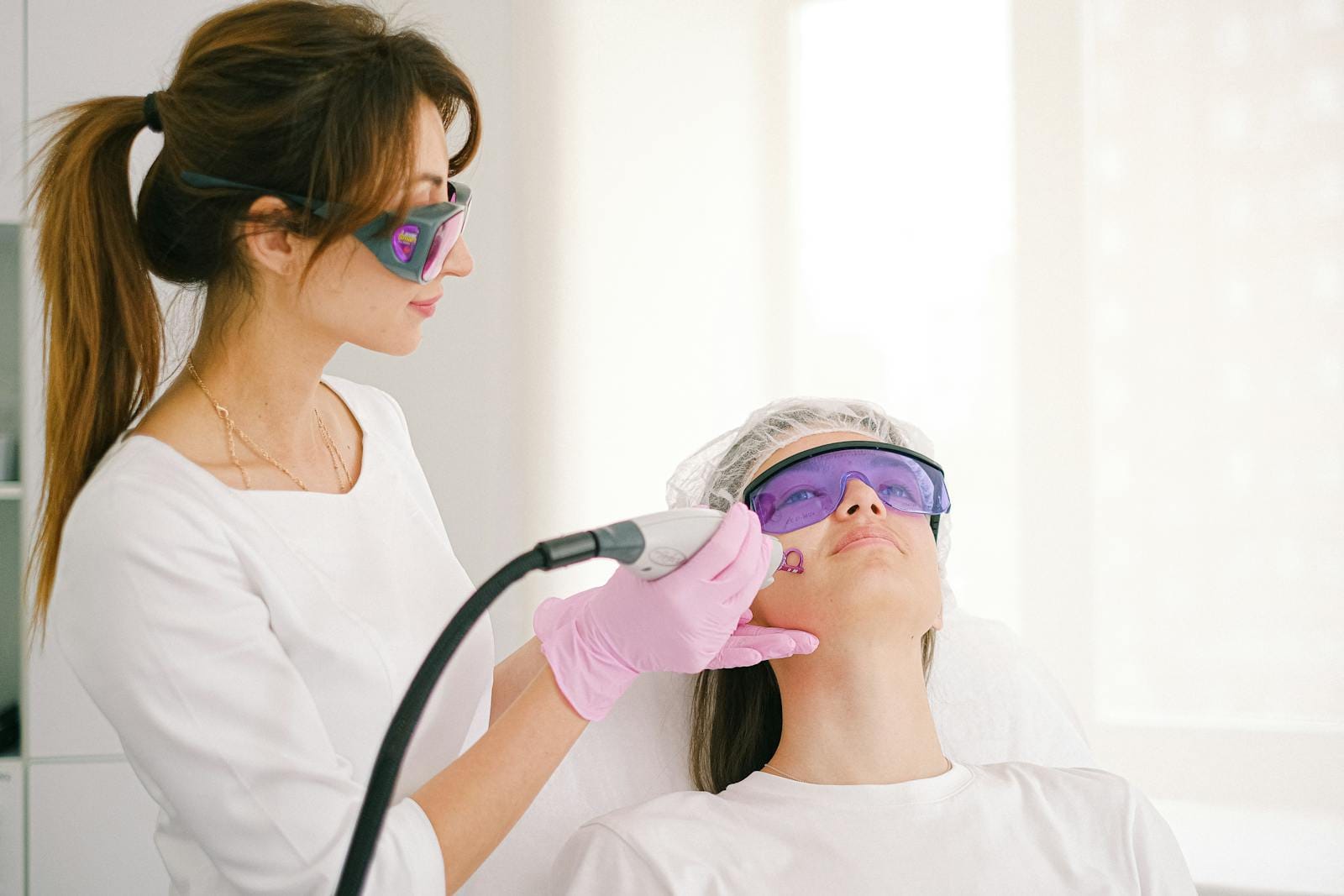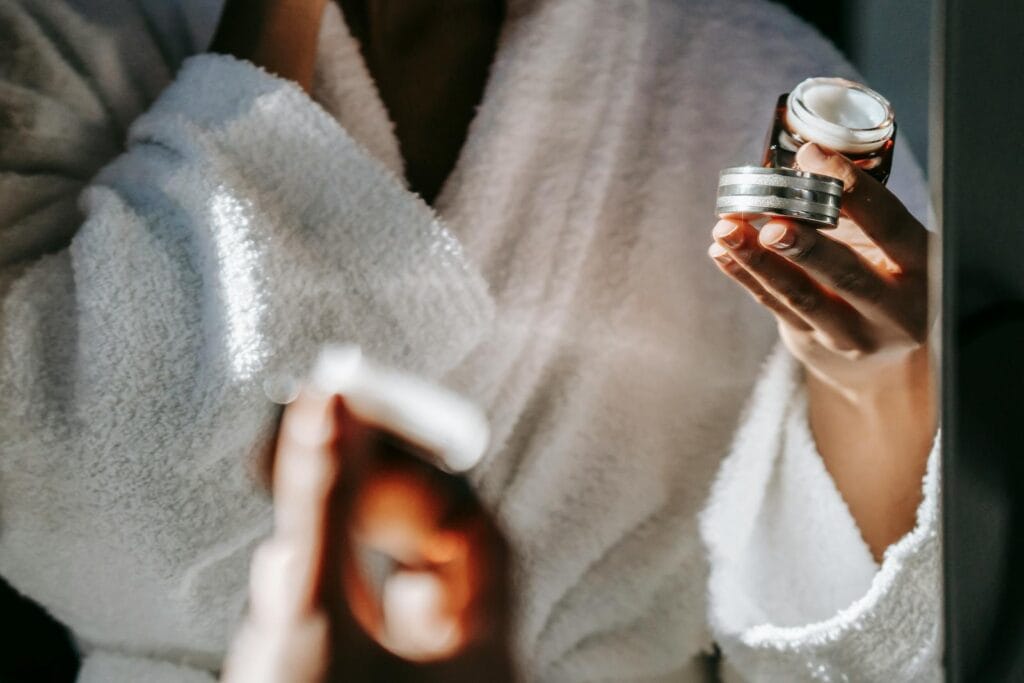
Side Effects of Doctor-Prescribed Creams: Can They Cause Dependency?

- The Difference Between Prescription Creams and Drugstore Products
- Are Steroids Safe to Use?
- The Facts Behind the Issue of Prescription Cream Addiction
- Use Prescription Creams According to a Prescription and Under Medical Supervision
Skin issues such as severe acne, eczema, hyperpigmentation, or dermatitis often require more serious treatment than regular over-the-counter products can offer. This is why consulting a dermatologist is so important. A dermatologist not only accurately diagnoses skin conditions but also prescribes topical creams or medications that contain highly effective active ingredients.
Due to the potency of these ingredients such as steroids, retinoids, or topical antibiotics, these products are not available over the counter and must be used under medical supervision. Improper or unsupervised use can lead to side effects, including concerns about the skin becoming dependent on these creams. This article will explore the facts about doctor-prescribed creams, the issue of dependency, and how dangerous it really is.
The Difference Between Prescription Creams and Drugstore Products
People with inflamed acne are often prescribed antibiotics such as clindamycin or active ingredients like tretinoin. These creams have been proven effective in reducing inflammation and excessive itching by targeting the root cause of the skin problem. What differentiates doctor-prescribed creams from daily skincare products is the type and concentration of active ingredients. Prescription creams usually contain powerful ingredients and are intended for specific skin conditions, not for routine daily use. Therefore, they should never be used without a doctor’s supervision.
Are Steroids Safe to Use?
Steroids whether in oral or topical form, most commonly corticosteroids—are frequently used in skincare products. Their main purpose is to relieve symptoms like skin inflammation, reduce itching, treat autoimmune disorders, reduce hyperpigmentation, brighten the skin, and treat acne. Steroids work in skincare by suppressing the local immune response in the skin.
They inhibit the action of immune cells that trigger inflammation, making them very effective at reducing redness, swelling, and itching. In addition, the production of substances like prostaglandins, histamines, and cytokines is also suppressed to decrease inflammation. However, excessive use of steroids can lead to side effects such as thinning and increased sensitivity of the skin, as well as rebound effects when use is suddenly stopped.
The Facts Behind the Issue of Prescription Cream Addiction

One of the common concerns among the public is the belief that doctor-prescribed creams cause dependency. Medically speaking, “dependency” in this context does not refer to addiction in the way substances like psychotropics do, but rather a condition where the skin becomes used to “dependent on” certain ingredients, especially when used over a long period. For example, when steroid-containing creams are stopped suddenly, the skin may react with rebound effects such as rashes, pain, or inflammation.
To prevent this, dermatologists typically taper off the treatment or replace it with alternative products to reduce symptoms and reactions. This tapering process helps the adrenal glands resume normal hormone secretion, lowering the risk of rebound reactions.
Use Prescription Creams According to a Prescription and Under Medical Supervision
Doctor-prescribed creams can be highly effective for treatment goals and specific skin conditions when used as directed and under a doctor’s supervision. With the right dose, duration, and consistent use, these creams can significantly improve various skin issues. However, it’s important to remember that the skin is a sensitive organ that can react negatively to excessive active ingredients or misuse. For this reason, avoid using prescription creams carelessly, especially those sold without clear labels or ingredient information.
Read more:
3 Recommended Cosmetic Testing Laboratories for Marketing Authorizations!
Always consult a trusted doctor or dermatologist for any skin concerns to ensure the treatment matches your skin’s needs. Wise use of medical products not only promotes skin health but also prevents long-term risks such as irritation, dependency, or permanent skin damage. Healthy skin doesn’t always come from strong products, it comes from correct usage and proper understanding.
Ensure that every cream formulation you produce contains active ingredients at levels that meet safety standards. Conduct active ingredient concentration tests and laboratory efficacy tests to ensure the effectiveness and stability of your product. Trust IML Research to ensure accurate and reliable laboratory testing results.
Author: Delfia
Editor: Sabilla Reza
References:
Gabros S, Nessel TA, Zito PM. Topical Corticosteroids. [Updated 2025 Apr 26]. In: StatPearls [Internet]. Treasure Island (FL): StatPearls Publishing; 2025 Jan-. Available from: https://www.ncbi.nlm.nih.gov/books/NBK532940/



